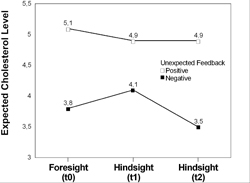The longitudinal research project “Risk Appraisal Consequences in Korea” (RACK) examines the effects of individualized health feedback on risk perceptions, health-related cognitions, and the motivation of health behavior changes. The following research questions are the main focus of the research project.
Health cognition and health behaviors: Are there cultural differences?

Currently, this project collects relevant data in South Korea. The Korean data will be compared with a German dataset of the Berlin Risk Appraisal and Health Motivation Study (BRAHMS). Previous studies showed that health-related behaviors of South Koreans are different compared to Western countries. However, epidemiological figures do suggest that cerebrovascular diseases, hypertension and CVD started to increase markedly in South Korea since the beginning of the 1980s (Tong-gye-chong, 1982, 1998). It is assumed that these changes are related to “westernized” diet habits. Therefore, it will be informative to learn how health cognitions and health behaviors are related to degrees of “westernization”.
Reactions towards feedback: Self-defensive or adaptive?

At first glance, perceiving a health threat seems to be the most obvious prerequisite for the motivation to change risk behaviors. If one is not aware of the risky nature of one’s actions, motivation cannot emerge. Therefore, a crucial barrier for health communication is to increase the personal relevance of a health issue to focus people attention on information that pertains directly to their personal risk (Renner & Schwarzer, 2000, 2003; Weinstein, 1998, 2003). However, numerous empirical studies demonstrated differential acceptance of negative and positive risk information (cf. Croyle, Sun, & Hart, 1997). Most researches interpreted these findings as evidence for motivated reasoning arguing that people, who are informed that they have an elevated risk of disease, minimize the seriousness of the health threat posed by the risk information and derogate the validity of the risk factor test in order to maintain a favorable sense of their health. However, the assumption of motivated reasoning has been challenged by the “cue adaptive reasoning account” (CARA; Renner, 2004). Extending the CARA research design introduced by Renner (2004), the present projects focus on the processing of self-relevant risk feedback (total cholesterol, blood pressure) in order to gain a more in depth understanding of how people react towards risk communication.
Impact of Health Risk information: A function of age?

The meaning and impact of self-related health risk information might vary greatly with differences in age. For instance, certain risk factors such as high blood pressure or high cholesterol are more prevalent in the elderly and thus might be perceived as less threatening by older people than by younger ones. However, to date research on risk communication has not incorporated the hypothesis that people might react differently towards risk communication as a function of age. In the present research project, we will examine how reactions towards self-related risk feedback are related to age and illness experience. This research is expected to provide particularly important information regarding effective risk communication.
Reactions towards feedback: A dynamic perspective

One further aim of the research project is to examine whether motivational pressures which influence information processing change over time. Results from the German sample indicate a change of motivational focus from “hot affect“ and fear control to more cognitive event representations and danger control as proposed by the dual process theory (Leventhal et al., 2003) using hindsight judgements as a probe (Renner, 2003). Interestingly, the dynamic shift in immediate and delayed hindsight measures suggests that motivational effects on hindsight judgments have an adaptive role and are consequent upon the change in motivational focus over time, instigating different coping strategies. In other words, it is hypothesized that memory distortions might play a functional role within the self-regulatory processes, and, as a by-product, recall errors vary as a phase-specific phenomenon. One aim of the Korean project is to replicate these findings and to extend these findings by incorporating various measures of reactions towards feedback.